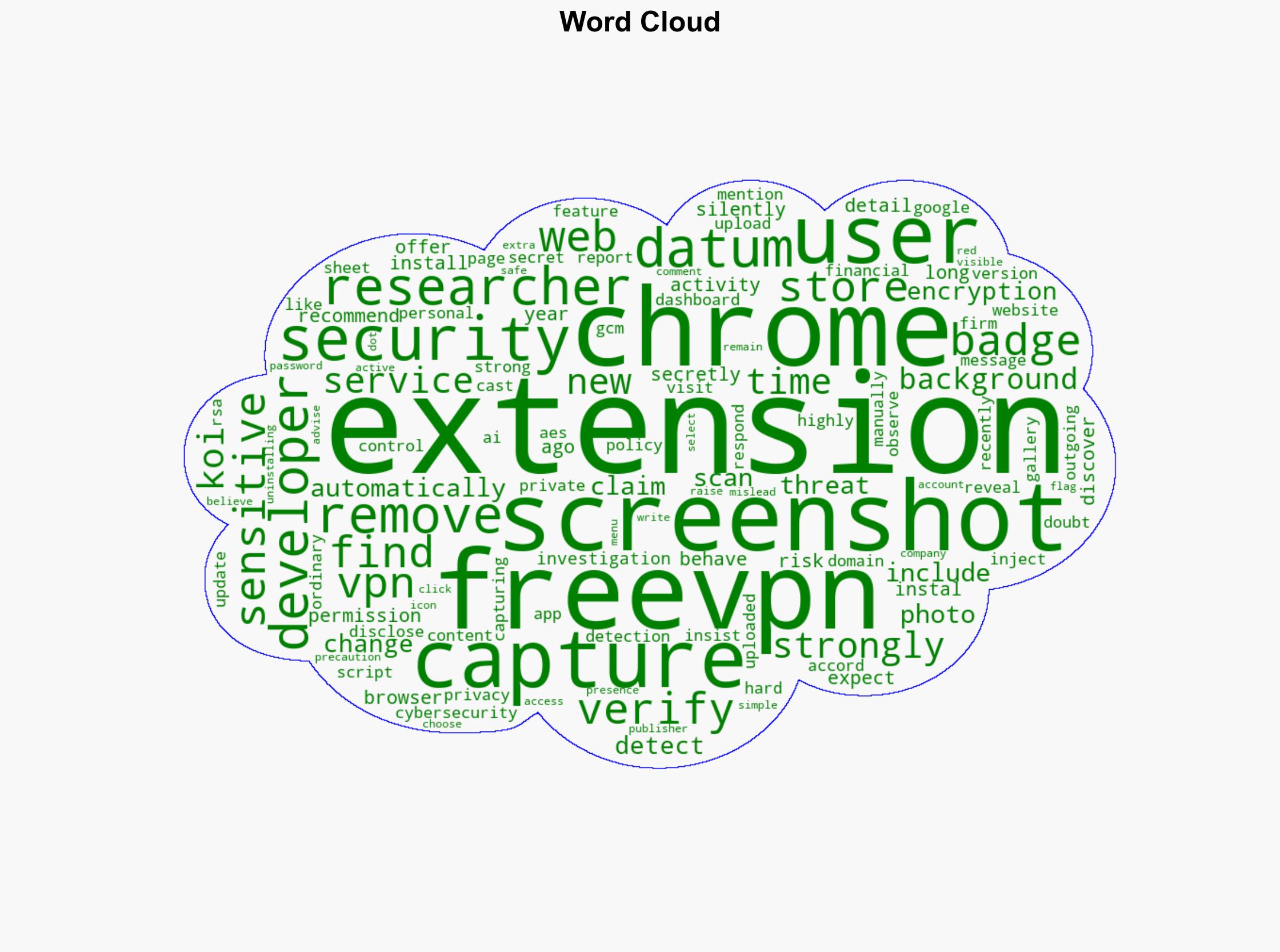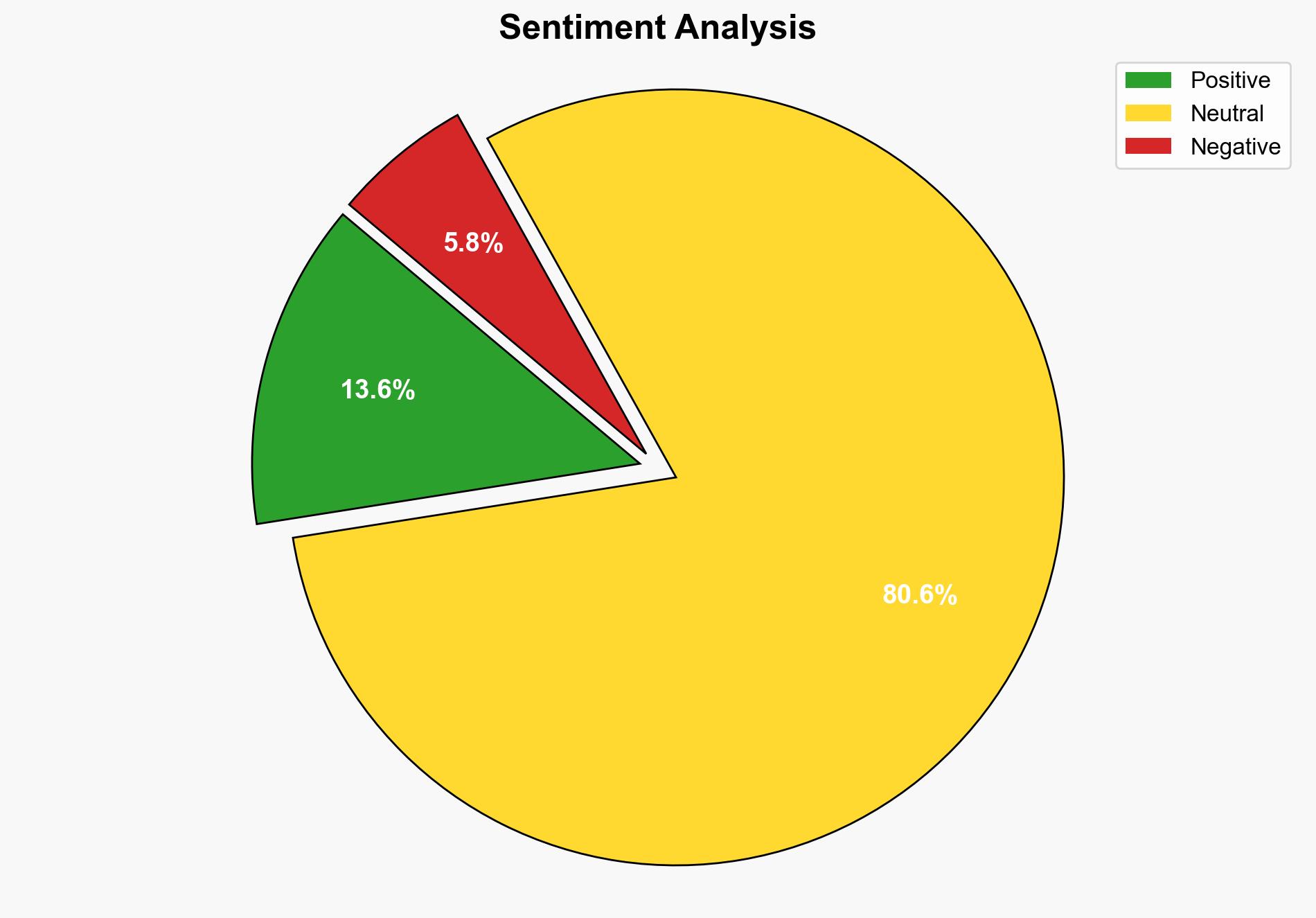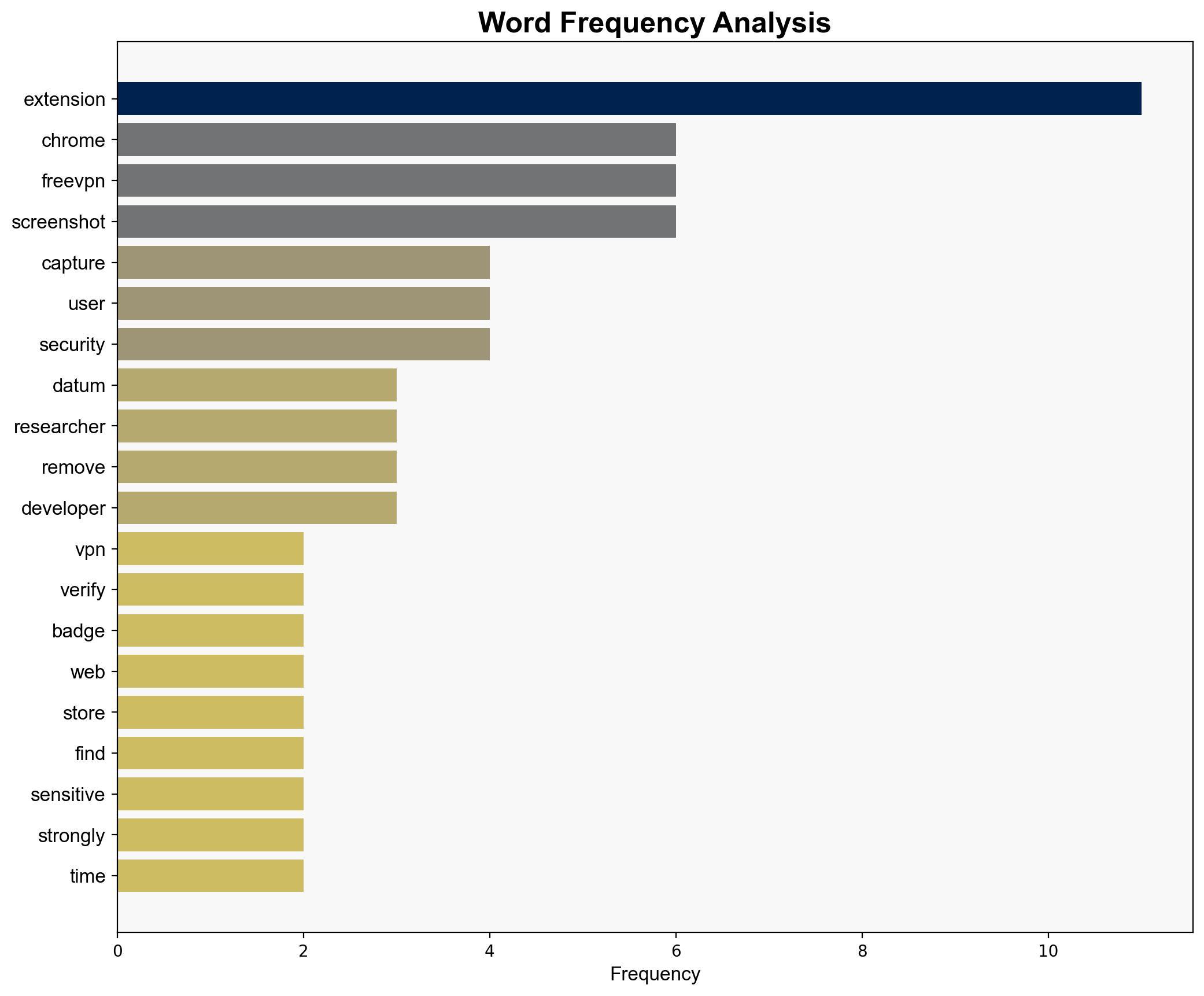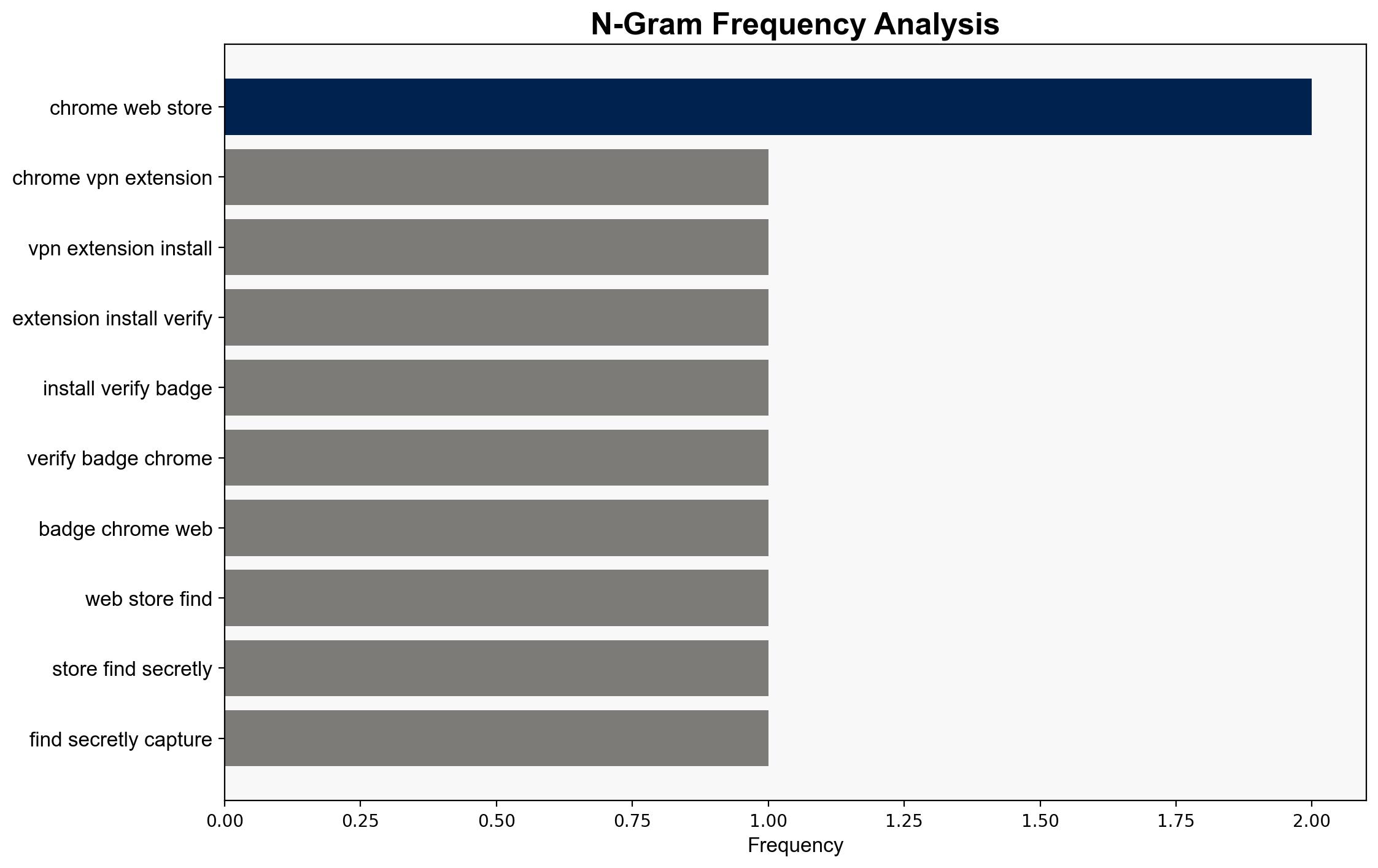Researchers Warn This Chrome Extension VPN Spies on Users – Phandroid – News for Android
Published on: 2025-08-20
Intelligence Report: Researchers Warn This Chrome Extension VPN Spies on Users – Phandroid – News for Android
1. BLUF (Bottom Line Up Front)
The investigation into the FreeVPN Chrome extension reveals potential privacy violations through unauthorized data capture, including screenshots of sensitive user information. The most supported hypothesis suggests deliberate data collection by the extension’s developers, posing a significant cybersecurity threat. Confidence level: High. Recommended action: Immediate removal of the extension by users and further investigation into the developers’ activities.
2. Competing Hypotheses
1. **Hypothesis A**: The FreeVPN extension is intentionally designed to capture and transmit user data to its developers for malicious purposes, such as data harvesting or selling to third parties.
2. **Hypothesis B**: The data capture functionality is an unintended consequence of poorly implemented features, and the developers are unaware of the privacy violations occurring.
Using the Analysis of Competing Hypotheses (ACH) 2.0, Hypothesis A is better supported due to the presence of scripts that capture screenshots without user consent, the lack of transparency in the privacy policy, and the absence of a visible company presence, which raises suspicion about the developers’ intentions.
3. Key Assumptions and Red Flags
– **Assumptions**: Hypothesis A assumes malicious intent by the developers, whereas Hypothesis B assumes incompetence or oversight.
– **Red Flags**: The extension’s continued presence on the Chrome Web Store with a verify badge, despite the findings, suggests potential oversight or complicity by the platform.
– **Inconsistent Data**: The developers’ claims of strong encryption and security measures contrast sharply with the observed data capture activities.
4. Implications and Strategic Risks
The unauthorized data capture by the FreeVPN extension could lead to significant privacy breaches, financial fraud, and identity theft. If the developers are indeed harvesting data, this could escalate to a broader cybersecurity threat involving multiple extensions or platforms. The incident highlights vulnerabilities in app store vetting processes, potentially affecting user trust and platform integrity.
5. Recommendations and Outlook
- Immediate removal of the FreeVPN extension by users to prevent further data breaches.
- Conduct a thorough investigation into the developers and their network to identify and mitigate broader threats.
- Enhance vetting processes for app stores to prevent similar incidents.
- Scenario Projections:
- Best Case: The issue is isolated to FreeVPN, and swift action prevents further breaches.
- Worst Case: The developers are part of a larger network exploiting multiple extensions, leading to widespread data theft.
- Most Likely: The developers are engaged in data harvesting, and further investigation reveals additional compromised extensions.
6. Key Individuals and Entities
– Koi Security (cybersecurity firm conducting the investigation)
– FreeVPN developers (identity unknown, raising concerns about accountability)
7. Thematic Tags
national security threats, cybersecurity, data privacy, application security




